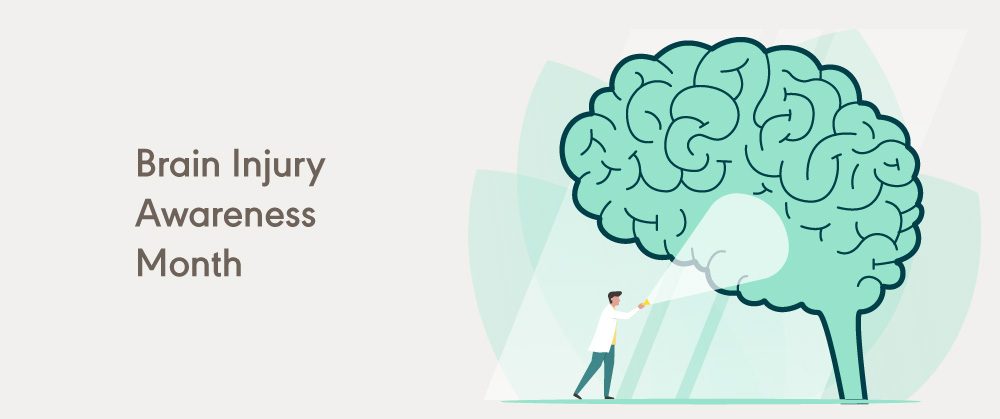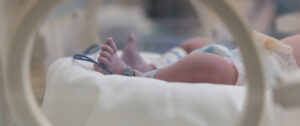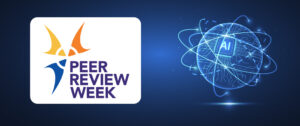The Brain Injury Association of America estimates that 1 in 60 Americans are living with a permanent brain injury. As part of Brain Injury Awareness Month, the ASHA Journals are showcasing the wide range of brain injury and highlighting resources that can improve care and support for those with brain injury.
One can easily think of an SLP treating speech and language issues in a person with traumatic brain injury. However, below we’re highlighting articles that show the full range of services ASHA members can offer people with acquired (ABI), traumatic (TBI), or mild traumatic (mTBI) brain injury. These include swallowing rehabilitation, dizziness and balance treatment, and even assistance with returning to the workplace.
Resources on Brain Injury in Children
Nonstandardized Assessment of Cognitive-Communication Abilities Following Pediatric Traumatic Brain Injury: A Scoping Review: Many children living with traumatic brain injury perform well on standardized tests but poorly in real-life situations. This article suggests that a well-designed nonstandardized assessment can show important information about children’s cognitive-communication abilities in real-world contexts.
Serving Students With Acquired Brain Injury: Understanding Long-Term Need and Outcomes After the BrainSTEPS Program: Children with brain injuries can display physical, behavior, cognitive, and social deficits or delays. In this article, authors point out that SLPs have experience assessing and treating social and cognitive communication, making them critical members of a school-based support team for children with ABI.
Resources on Brain Injury in Adults
The Effects of Right Hemisphere Brain Damage on Question-Asking in Conversation: Adults show a variety of conversational differences and challenges after right hemisphere brain damage. This study looked at how these individuals ask questions in conversation, suggesting specific linguistic characteristics to help assess right hemisphere damage.
Tutorial: The Speech-Language Pathologist’s Role in Return to Work for Adults With Traumatic Brain Injury: This article also emphasizes the importance of the SLP’s clinical expertise of the cognitive-communication aspects of TBI. Authors present a tutorial of the role an SLP can play in a patient’s return to work process following a TBI.
Resources on Concussion (Mild TBI)
First-Line Health Care Providers’ Reported Knowledge of and Referrals to Speech-Language Pathologists for Clients With Mild Traumatic Brain Injury: People with mTBI may experience deficits in cognition or communication that go unnoticed by physicians, nurses, or other first-line health care providers. This article highlights the fact that these professionals may be unaware of the care SLPs can provide for these clients, leading to a low rate of referrals for speech care.
Vestibular Rehabilitation Effectiveness for Adults With Mild Traumatic Brain Injury/Concussion: A Mini-Systematic Review: Finally, we showcase an article about the important role an audiologist can play after a concussion. People may experience dizziness, disequilibrium, and compromised vision after a concussion. If these conditions don’t subside, audiologists may provide vestibular rehabilitation therapy.
Even More Brain Injury Resources
Looking for more information on how to support patients after brain injury? The ASHA Journals have published four forums with clinical implications for brain injury in the past year alone! Check them out below.
Forum: 2020 Clinical Aphasiology Conference: Includes articles on aphasia, anomia, and discourse after mTBI.
Forum: Counseling Patients With Neurogenic Communication Disorders: Explores the role of the SLP as a counselor for patients and families with aphasia or acquired brain injury.
Forum: Interdisciplinary Management of Concussion or Mild TBI: These articles provide direction for training, research, and practice related to the management of concussion/mTBI.
Special Issue: Select Papers From the International Cognitive-Communication Disorders Conference: This special issue focuses on TBI and concussion in patients of all ages.
More Than a Brain Injury
The theme of this year’s Brain Injury Awareness Month—More Than My Brain Injury—is important for ASHA members to consider this month and beyond. The articles highlighted showcase the wide range of brain injury symptoms and how ASHA members can best serve these patients by treating them as complete individuals.
You can read more articles about TBI on our topic page or learn more about the role of ASHA members in treating brain injury in children and adults on the ASHA Practice Portal. We’d like to thank you for joining us in recognizing Brain Injury Awareness Month!







